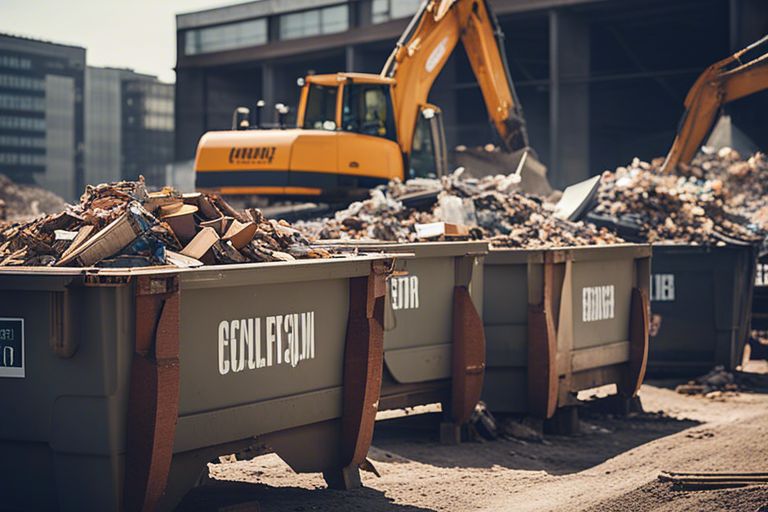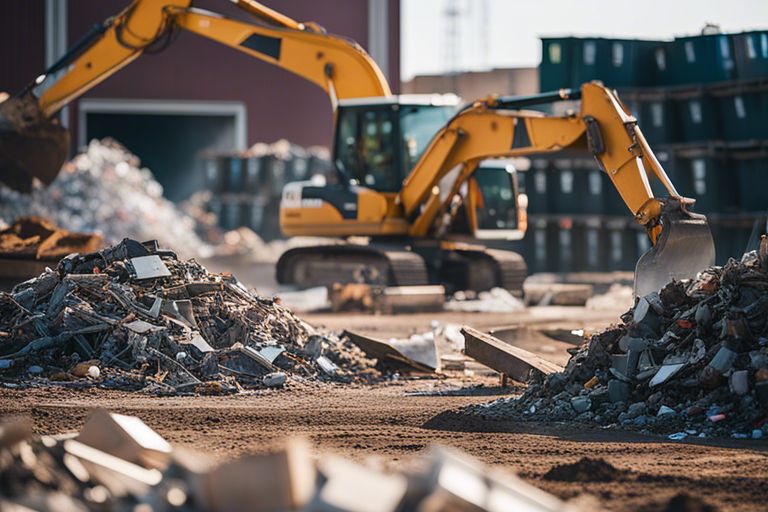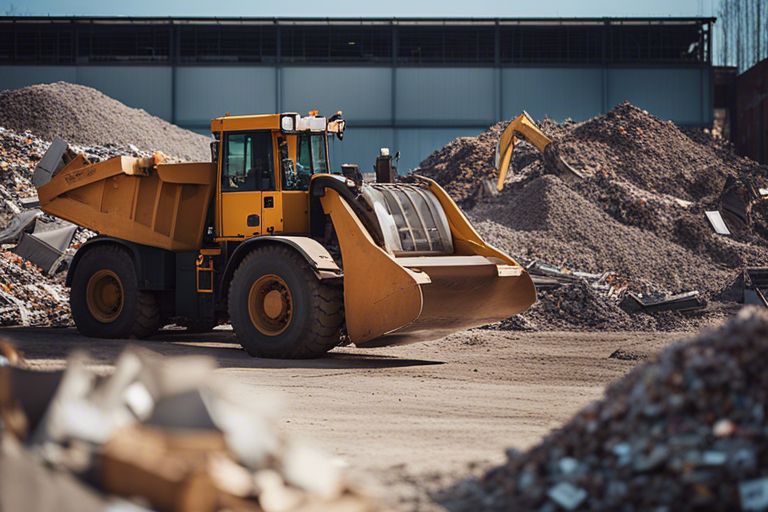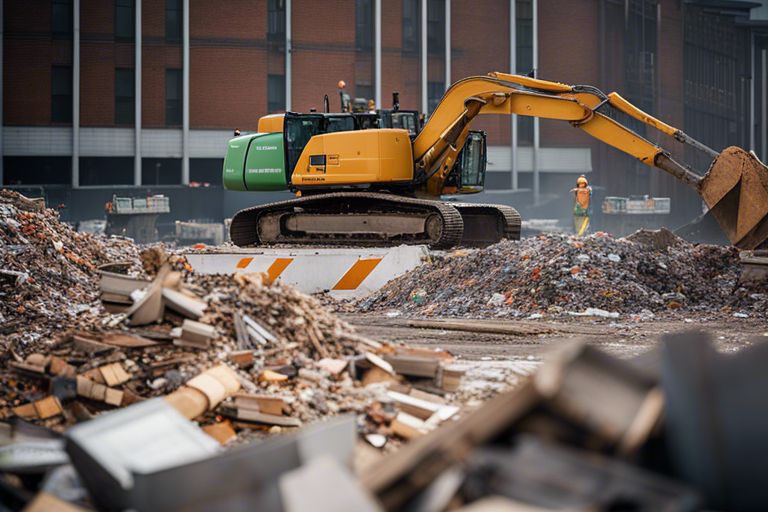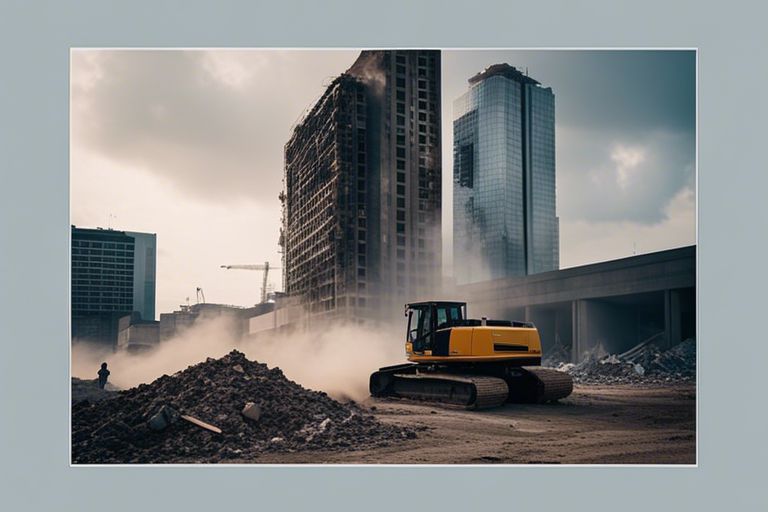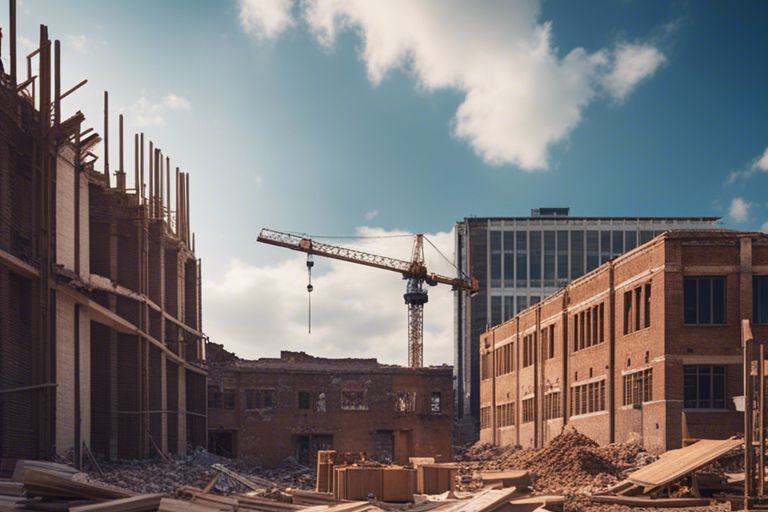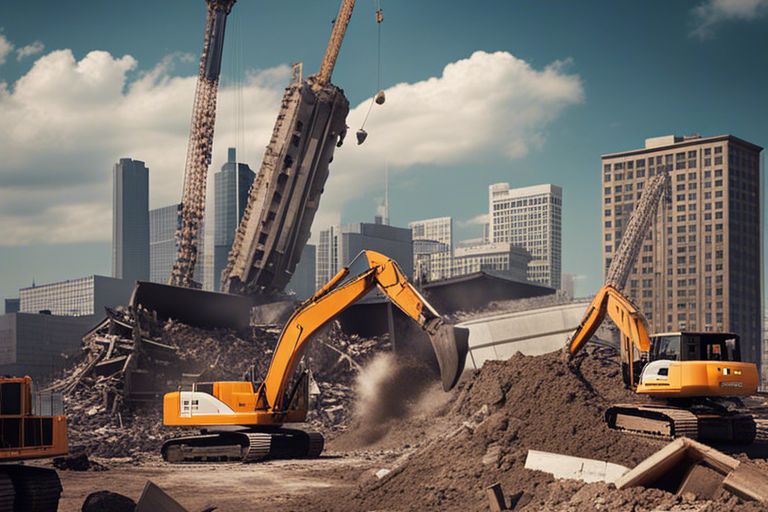Pertaining to the demolition of buildings, proper waste management is crucial to ensure environmental sustainability and safety. Demolition waste can include hazardous materials such as asbestos, lead, and chemicals, posing a significant risk to both the environment and human health. Implementing best practices in disposal and recycling can minimise these risks while maximising the potential for waste reduction and resource recovery. This article will explore into the importance of proper waste management techniques during demolition projects, highlighting the benefits of recycling materials and the dangers of inadequate disposal methods. Stay tuned to learn how to effectively manage demolition waste for a cleaner, safer future.
Key Takeaways:
- Proper segregation: Ensuring effective sorting of demolition waste into categories like concrete, wood, metal, and plastics can maximise recycling efforts.
- Implementing reuse strategies: Prioritising salvaging and reusing materials can significantly reduce the amount of waste sent to landfills.
- Collaboration with recycling facilities: Partnering with certified recycling centres can guarantee proper disposal of demolition waste while promoting sustainability.
Demolition Waste Management Strategies
Waste Characterization and Assessment
Before undertaking any demolition project, it is crucial to conduct a thorough waste characterization and assessment to identify the types and quantities of materials that will be generated. This information will help in planning for proper disposal and recycling of the waste materials.
Planning and Implementing a Waste Management Plan
Creating a waste management plan is a vital step in ensuring that demolition waste is dealt with responsibly. The plan should outline procedures for sorting, collection, transportation, disposal, and recycling of different types of waste generated during the demolition process. It is important to involve all stakeholders in the planning and implementation process to ensure a smooth and efficient waste management operation.
Key components of a waste management plan include setting clear objectives, establishing responsibilities for waste management tasks, providing training to personnel involved, and monitoring and evaluating the effectiveness of the plan regularly. Adhering to regulations and best practices is imperative for a successful waste management strategy.
Best Practices for Demolition Waste Disposal
Segregation of Waste Materials
Segregation of waste materials is crucial in demolition waste disposal to ensure that different types of materials can be properly recycled or disposed of. By separating materials such as concrete, metal, wood, and plastics on-site, it becomes easier to send them to the appropriate recycling facilities or landfills. Effective segregation reduces contamination and increases the efficiency of the recycling process.
Proper Handling and Transportation
Proper handling and transportation of demolition waste is imperative to prevent hazards to the environment and human health. It is important to use appropriate containers and vehicles to transport the waste securely. Hazardous materials should be carefully labelled and separated to avoid accidents or leaks during transit. Compliance with regulations on the transportation of waste materials is critical to ensure safety and environmental protection.
Concerning handling and transporting demolition waste, it is vital to train personnel on the proper procedures and safety precautions. Workers should be equipped with personal protective equipment to minimise exposure to harmful substances. Regular inspections of containers and vehicles should be carried out to identify any potential risks and address them promptly. Failure to handle and transport demolition waste correctly can result in environmental pollution, health risks, and legal consequences.
Recycling and Recovery of Demolition Materials
Identifying Recyclable Components
Before initiating the recycling process, it is crucial to identify the recyclable components within the demolition waste. Commonly recyclable materials include concrete, bricks, metals, wood, and asphalt. Sorting these materials at the demolition site or a recycling facility helps streamline the recycling process and reduce the amount of waste sent to landfills.
Technologies and Processes for Material Recovery
Various technologies and processes are available for the recovery of demolition materials. These include crushing equipment, sieves, magnets, and air classifiers to separate and process different materials. Automated sorting systems can further enhance the efficiency of material recovery processes, reducing manual labour and improving the quality of recycled materials.
Investing in state-of-the-art technologies can not only increase the rate of material recovery but also improve the overall quality of recycled materials. By utilising advanced equipment and processes, construction companies can maximise resource efficiency and minimise environmental impact during demolition waste management.
Policies and Regulations Governing Demolition Waste
Local and National Regulatory Frameworks
Demolition waste management is governed by a range of policies and regulations at both the local and national levels. Local authorities often have specific guidelines in place to regulate the disposal and recycling of demolition waste within their jurisdictions, while national regulations provide a broader framework for waste management practices.
Compliance and Enforcement Mechanisms
Ensuring compliance with demolition waste management regulations is crucial to minimising the environmental impact of demolition activities. Compliance and enforcement mechanisms play a vital role in holding stakeholders accountable for their waste management practices. Penalties for non-compliance can include fines, suspension of permits, or even legal action.
It is crucial for authorities to have robust monitoring systems in place to oversee compliance with regulations. Regular inspections of demolition sites, audits of waste disposal records, and collaboration with industry stakeholders are key aspects of effective compliance and enforcement mechanisms. By enforcing these measures, we can safeguard our environment and promote sustainable waste management practices.
Demolition Waste Management – Best Practices for Disposal and Recycling
Effective demolition waste management involves implementing best practices for disposal and recycling to minimise environmental impact and promote sustainability. By following proper waste segregation, reuse, and recycling strategies, construction companies can significantly reduce the amount of waste sent to landfills. To enhance knowledge on this important topic, it is advisable to refer to resources such as Managing Construction Waste Recycling and Reuse Strategies. Utilising these guidelines will not only benefit the environment but also improve the overall efficiency and cost-effectiveness of construction projects. Embracing responsible waste management practices is crucial for a greener and more sustainable construction industry.
FAQ
Q: What is demolition waste management?
A: Demolition waste management is the process of handling, recycling, and disposing of waste generated during demolition activities in a safe and environmentally responsible manner.
Q: Why is it important to manage demolition waste effectively?
A: Effective demolition waste management helps reduce the environmental impact of demolition activities, minimises landfill waste, conserves resources, and promotes sustainable practices in the construction industry.
Q: What are the best practices for disposal of demolition waste?
A: Best practices for disposal of demolition waste include sorting materials for recycling, reusing salvaged items, sending non-recyclable waste to suitable landfill facilities, and complying with local waste disposal regulations.
Q: How can demolition waste be recycled?
A: Demolition waste can be recycled by segregating different materials such as concrete, wood, metal, and plastics, and sending them to recycling facilities where they can be processed and reused in new construction projects.
Q: What are the benefits of proper demolition waste management?
A: Proper demolition waste management not only reduces the environmental impact and promotes sustainability but also helps save costs through material recovery, enhances the reputation of construction companies, and contributes to a cleaner and healthier environment for all.

